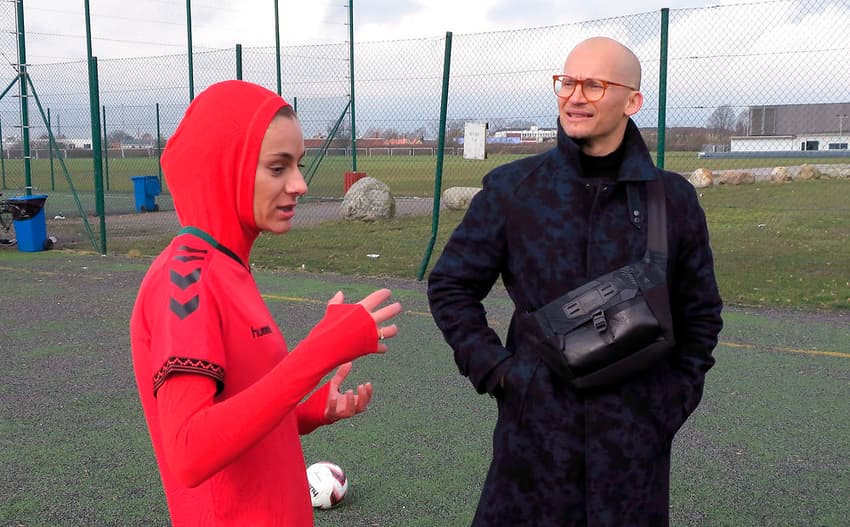Hummel ends sponsorship of Afghan football federation

Hummel has announced it will no longer sponsor Afghanistan’s football association after allegations emerged of physical, psychological and sexual abuse committed by male employees against players from the country’s women’s national team.
The Danish sports company informed Afghanistan’s football association (AFF) of its decision on November 29th.
Hummel head of communications Ulrik Feldskov Juul is in charge of the sports and fashion firm’s ‘Company Karma’ concept, which the Afghanistan team’s sponsorship was a part of.
Juul said that Hummel had been made aware of the allegations on November 26th by former Afghanistan national team captain Khalida Popal, who now lives in Denmark.
“I was presented with email correspondences and contacted various people who confirmed the allegations,” he said.
“We are breaking off the partnership because we do not want to be associated with the current management (of AFF). These are very, very serious allegations,” Juul said.
A week prior to the Hummel decision, an AFF contract showing restrictive conditions and taking rights away from female players was published on social media.
Several of the team’s players have been dropped from the squad after refusing to sign.
Juul said Hummel would continue to support Afghanistan’s female footballers.
“We have been very much involved in supporting women’s football there. We have nothing against the (Afghan) football association, just the current leadership,” he said.
“I think there will now be some focus on the disgusting conditions that exist for women in Afghan football. Grass roots work still exists there,” he said.
Hummel has said it would consider reviving the partnership once the ongoing issues have been resolved and after a change of AFF leadership.
FIFA announced on November 30th that it was investigating the case.
READ ALSO: Nadia Nadim: the refugee who became a Danish footballing role model
Comments
See Also
The Danish sports company informed Afghanistan’s football association (AFF) of its decision on November 29th.
Hummel head of communications Ulrik Feldskov Juul is in charge of the sports and fashion firm’s ‘Company Karma’ concept, which the Afghanistan team’s sponsorship was a part of.
Juul said that Hummel had been made aware of the allegations on November 26th by former Afghanistan national team captain Khalida Popal, who now lives in Denmark.
“I was presented with email correspondences and contacted various people who confirmed the allegations,” he said.
“We are breaking off the partnership because we do not want to be associated with the current management (of AFF). These are very, very serious allegations,” Juul said.
A week prior to the Hummel decision, an AFF contract showing restrictive conditions and taking rights away from female players was published on social media.
Several of the team’s players have been dropped from the squad after refusing to sign.
Juul said Hummel would continue to support Afghanistan’s female footballers.
“We have been very much involved in supporting women’s football there. We have nothing against the (Afghan) football association, just the current leadership,” he said.
“I think there will now be some focus on the disgusting conditions that exist for women in Afghan football. Grass roots work still exists there,” he said.
Hummel has said it would consider reviving the partnership once the ongoing issues have been resolved and after a change of AFF leadership.
FIFA announced on November 30th that it was investigating the case.
READ ALSO: Nadia Nadim: the refugee who became a Danish footballing role model
Join the conversation in our comments section below. Share your own views and experience and if you have a question or suggestion for our journalists then email us at [email protected].
Please keep comments civil, constructive and on topic – and make sure to read our terms of use before getting involved.
Please log in here to leave a comment.